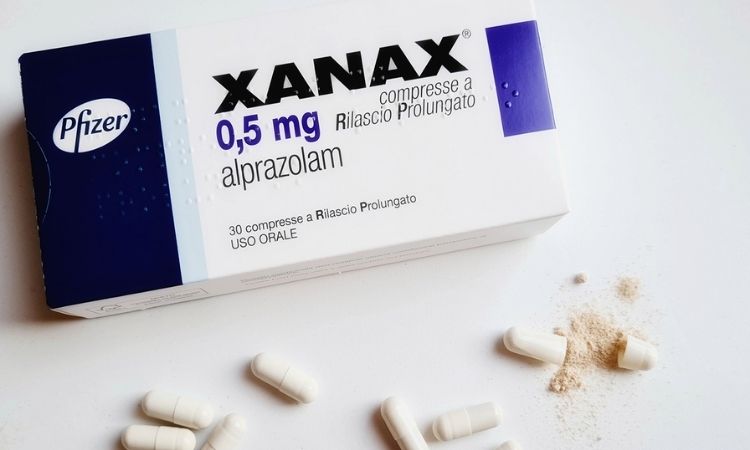
Xanax is a type of Benzodiazepine. This class of drugs is prescription medications that depress the reactions of the central nervous system. Xanax is prescribed to help people manage their anxiety, panic disorders and alleviate insomnia. People that abuse Xanax are likely taking more than prescribed and falsifying symptoms to obtain more Xanax. Xanax is sometimes prescribed for other medical conditions such as chronic muscle pain, spasms, and vertigo. Xanax is the most widely prescribed Benzodiazepine. Addiction to Xanax occurs quickly in as few as three weeks of daily use. The reason people become addicted to Xanax so soon because it is a physically addicting drug that changes chemical reactions in the brain. Tolerance to the effects of Xanax develops almost immediately.
Why Do Doctors Rely on Xanax if it is Addictive?
Doctors provide Xanax to reduce anxiety and promote sleep right away. The risks benefits calculator should be applied more often by medical practitioners, but in the case of an emergency or emotional crisis, doctors are trained to save life first. Therefore, they should be only prescribed when patients feel extremely distressed. The good news is that most doctors are cautious about prescribing Xanax beyond acute symptoms. Still, most people addicted to Xanax got it from their doctor first.
Among people aged 12 or older in 2020, 4.8 million people in the United States misused prescription benzodiazepines, such as Xanax, in the past year. (SAMHSA)
Understanding the Severity of Xanax Addiction
A person’s body will develop a tolerance to benzodiazepines once an individual uses them regularly and needs higher doses, either legitimately for medical reasons or to achieve euphoria (get high). Xanax addiction poses an increased risk of accidental overdose from taking too much or combining it with alcohol and other drugs, typical for addicts. Xanax causes physical dependency, which means the person will experience withdrawal symptoms if they do not use Xanax all the time. Xanax withdrawal symptoms include:
- Insomnia
- Severe anxiety
- Panic attacks
- Seizures
- Heart palpitations
- Excessive sweating and hand tremors (shakes)
- Muscle spasms and pain
- Emotional instability
The Effects of Addictive Drugs Like Xanax
The research conducted on Xanax addiction and how the drug affects a person is extensive. Dr. Samoan Ahmad is a Clinical Professor of Psychiatry at NYU School of Medicine and has provided expert insight on the effects of addictive drugs like Xanax.
When Is Medical Intervention Necessary?
When a person is addicted to Xanax, they must receive medical attention to safely detox from the presence of the drug in their system. River Walk Recovery provides a taper for the safest and most comfortable Xanax addiction detox. Reducing the amount of Xanax minimizes the possibility of a dangerous seizure occurring. It is never recommended to quit cold turkey. The taper-down regimen for Xanax detox means the patient will be prescribed less and less Xanax as their bodies adjust to smaller doses gradually. The taper-down detox process is safe and most widely supported in all medical settings.
River Walk Recovery Is Here To Help You Detox and Heal in One Phone Call
A solid treatment program for addiction to Xanax should not end after a person has completed detox. It is strongly recommended that someone complete a structured treatment program. Those who seek treatment for Xanax addiction can find evidence-based programs at River Walk Recovery most beneficial. We use science-based methods to treat addiction, including behavioral therapy, holistic therapy, and in-depth counseling. A person may also be treated for mental health disorders related to Xanax addiction. Many addicts are diagnosed with anxiety, depression, and other mental illnesses.
